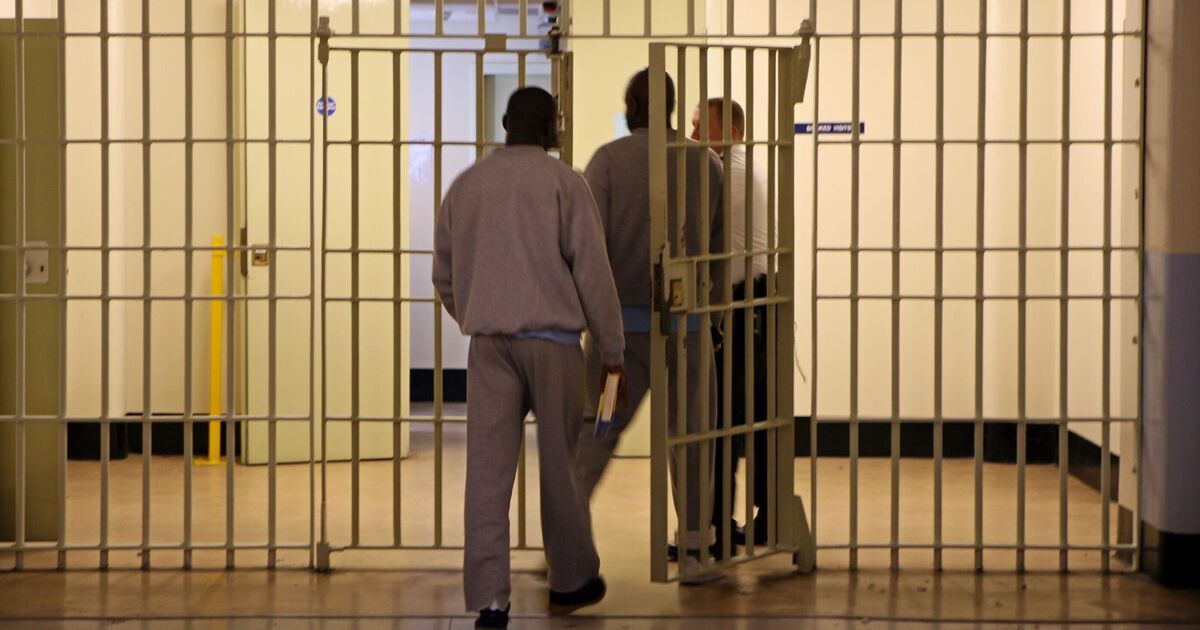Sending fewer criminals to prison could lead to more pressure on the probation service and the NHS, justice chiefs said.
Former justice secretary David Gauke, who is carrying out a sentencing review, is widely expected to recommend more offenders are given community orders and reduce the number of short jail sentences.
And the Ministry of Justice admitted this could heap more pressure on Britain’s creaking probation system, which is plagued by staffing issues.
This could lead to staff having to choose which offenders to manage, rather than keeping an eye on all of them.
Dame Antonia Romeo, Permanent Secretary of the Ministry of Justice, told the Public Accounts Committee: “Do we understand that having fewer people in prison will lead to an additional burden elsewhere in the system?
“The answer is absolutely yes.
“We talk about this a lot.
“If anything, the impact on probation is significant but also rising and will significantly increase if we attempt to drive down the prison population through decisions that ministers may or may not make in the future.”
Amy Rees, Director General of His Majesty’s Prison and Probation Service told the Public Account Committee: “It’s not just probation, it’s all the other services, it’s health, all the other people that need to pick those up.
“It is certainly true, with all of those other community services, had we kept them in the community and they kept the link to those services in the first place, it would be much better than trying to move them into custody, and then in a very short period, they moved back out into community.”
Ms Rees added: “Just on probation, to be clear and candid, that we will need to take some decisions should the outcome of the sentencing review be that we’re going to put more volume into probation.
“We will need to take the decision on what they are going to prioritise, because it isn’t possible for them to manage and increase workload beyond where they are at the moment.”
Justice chiefs have admitted fewer criminals will go to prison to ease the overcrowding crisis behind bars.
At the height of the crisis last year, there were fewer than 80 spare cells for adult males.
MPs heard a shocking one in four prisoners are sharing a cell designed for only one person.
The National Audit Office
The watchdog also said the then government’s 2021 pledge to create an extra 20,000 cells spaces by building more prisons, temporary wings and refurbishing existing cell blocks is now not expected to be met until 2031 – around five years later than promised.
As of September, a third (6,518) of the 20,000 had been made available, according to the NAO.
Reasons behind delays include “unrealistic timelines” and overestimating the ability to get planning permission for three out of the six new prisons due to be built.
The plans are now expected to cost between £9.4 billion and £10.1 billion – at least £4.2 billion more than 2021 estimates amid a rise in construction prices, the report said.
The NAO also warned the Government department “does not have any contingency plans to increase prison capacity as it views it has limited options left to do this”.
Changes to sentencing will end short custodial terms and ensure more criminals are punished in the community through house arrest and greater use of technology such as electronic tagging to restrict their movements.
And jails are turning to abroad to recruit overseas officers to make up places, with the majority coming from Nigeria.
Mark Fairhurst, chairman of the Prison Officers’ Association (POA), the trade union representing prison officers, said foreign recruits were struggling with the language.
He said: “We have reports, and this is confirmed by prison governors, that some overseas recruits struggle to, or simply cannot, speak English.”
The Prison Governors’ Association’s (PGA) Tom Wheatley, who said: “The scale of the levels of people from African, particularly Nigerian, origin, who are applying for jobs in the prison service, at the moment they are in the majority by a significant margin.”











